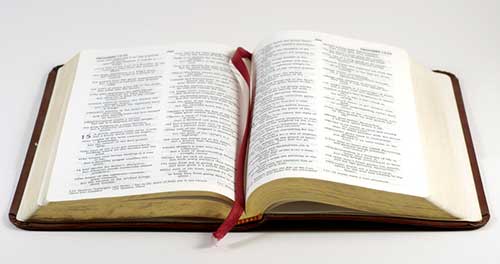
I am very grateful to Dr Katie Marcar. At the recent Anglo-Catholic Hui, she presented a Bible study and introduced The Art of Reading Scripture (I have ordered the book). A dozen eminent scholars formed The Scripture Project and from that developed nine theses on interpreting biblical texts:
1. Scripture truthfully tells the story of God’s action of creating, judging, and saving the world.
2. Scripture is rightly understood in light of the church’s rule of faith as a coherent dramatic narrative.
3. Faithful interpretation of Scripture requires an engagement with the entire narrative: the New Testament cannot be rightly understood apart from the Old, nor can the Old rightly be understood apart from the New.
4. Texts of Scripture do not have a single meaning limited to the intent of the original author. In accord with Jewish and Christian traditions, we affirm that Scripture has multiple complex senses given by God, the author of the whole drama.
5. The four canonical Gospels narrate the truth about Jesus.
6. Faithful interpretation of Scripture invites and presupposes participation in the community brought into being by God’s redemptive action — the church.
7. The saints of the church provide guidance in how to interpret and perform Scripture.
8. Christians need to read the Bible in dialogue with diverse others outside the church.
9. We live in the tension between the “already” and the “not yet” of the kingdom of God; consequently, Scripture calls the church to ongoing discernment, to continually fresh rereading of the text in light of the Holy Spirit’s ongoing work in the world.
Once I have read the book, I will be (I hope) in a better position to engage with individual theses. Certainly, number 3 leaps out as having significant issues. And number 6 is also questionable. Surely the scholarly interpretation of texts has some sort of “objective” (whatever that means in our post-modern world) validity? Does a person really need to believe in God, really need to participate in church life, really need to subscribe to the creeds in order to give an intelligent interpretation of biblical texts? I am going to need some persuading to be convinced of that. I think good biblical exegesis can be done by an atheist. [So, I’m much more a number 8 sort of person!]
In this series of posts, I am going to contend that one can disagree with what the Bible says, that faithful Christians can disagree with what the Bible says. In discussions, some people are very perturbed at such a suggestion. To them, once you have ascertained what the Bible says – that must be understood to be correct. For them, the Bible cannot be wrong. About anything.
In my ordination vows I am asked:
Bishop Do you believe that the Bible contains all
that is essential for our salvation,
and reveals God’s living word in Jesus Christ?
Candidate Yes, I do.
God give me understanding in studying the Scriptures.
May they reveal to me the mind and heart of Christ,
and shape my ministry.
And, I sincerely adhere to that.
But, the Bible also contains stuff that is not “essential for our salvation”, and, in such cases, I believe I am at liberty to agree or disagree with what it says. This frees me from bringing a conclusion I want to find in the Bible. If I do not think of myself as being bound by the result of my research, then I am free to study unencumbered by my hoped-for conclusion. Those who need to believe everything the Bible teaches will be less inclined to treat the text honestly when such honest reading leads to conclusions that are uncomfortable to them. Or clearly false in the understanding of our contemporary world and its disciplines of science or history.
An example: recently I studied the word “have dominion” in Genesis 1:28. Had it come up with a conclusion that humans can simply pillage and abuse the environment, I could be honest that that is what the text meant, without needing to feel required to abide by that in our 21st Century environmental crisis. As it eventuated, I don’t think that that is what the word means.
I can research the biblical texts to understand whether they thought Pi is 3, or the world is a disc on pillars, or there is a dome with water above it and holes to let the rain through, or Adam and Eve are historical people… I can be honest as I approach the text, unconstrained and unconcerned by the need to find that Pi actually was revealed in the scriptures as an irrational number, or that the world is going around the Sun in the outer reaches of the Milky Way Galaxy…
What do you think?
To be continued…
at Disagreeing With The Bible Part 2
If you appreciated this post, do remember to like the liturgy facebook page, use the RSS feed, and sign up for a not-very-often email, …




I only feel uncomfortable with #5. If it is in reference to the theological truth about Jesus, then it is already implied in the other sentences. If it means that what the four canonical gospels are more historical than the rest, I disagree.
I totally agree with you about stuff that is not “essential for our salvation”.
Good point, thanks, George. Blessings.
Thanks for this post. I look forward to more discussion. I want to share an experience which occured in oue bible study group on Monday night Oct15, 2018. We are Anglicans of the Holy Saviour Parish in Trinidad and Tobago.The NRSV is the recommended version in our diocese. We were studying Matthew 27. When we reached verse3 it said Judas repented.Well none of the ladies (only 2 men in the class) were willing to accept that. So I asked are you disagreeing with the bible? Well some said no and pulled out their KJV aor NIV to get an interpretation that suited them.Them we came to verse 9 the Jeremiah prophecy which we could not find in the OT. So were were faced with the possibility that a mistake was made but no one was willing to accept that. I share this because bible study is done by thousands of ordinary people and I think no.(6) is important and relevant.
Thanks for these cool illustrations, Robert, of concrete discussions with a specific text. Blessings.
What do I think? A lot about this. But can I speak? That is the question. I have 20 chapters left to complete my computational pattern matching translation of the Old Testament. Yes it is vital to understanding Jesus as son and Israel as son. It is also a brutal reality – red in tooth and claw. Gang warfare and poor examples everywhere. What a job God has with us. The 9 point list must not turn out to be just another way of justifying the status quo.
Thanks, Bob. Your labours are phenomenal! God bless your work as you bring it to completion. Blessings.
Never in a thousand years will you get me to agree that we need to love at all costs and in all situations. Yes the commandments are a very good ideal but there will always be situations where love is not a wise response to evil. Surely as well as being called to love we are also called to hate evil…. My God is a God of love but also a God of justice….and justice does involve judgement. Forgiveness after repentance not before repentance…
Thanks, Tim. I guess, like a with a previous comment, it depends on what one means by “love”. I don’t see love being opposed to hating evil, to justice, nor to judgement. As to the order of forgiveness-repentance, that would require more than a short comment 🙂 Blessings.
Love is the *only* remedy for evil, but it’s better done ( maybe can only be done ) as ‘show not tell’.
Look forward to reading in more depth, have always loved your writing on the ‘flattening of the narrative’ as you coined it years ago.
Be well. Tracy
Bosco is each of these nine theses meant to stand alone as one approach to scripture, or are they all nine together to be the recommended approach put forward by the “scholars.”
David, I do not yet own the book, but my impression is that one takes the nine together. Blessings.